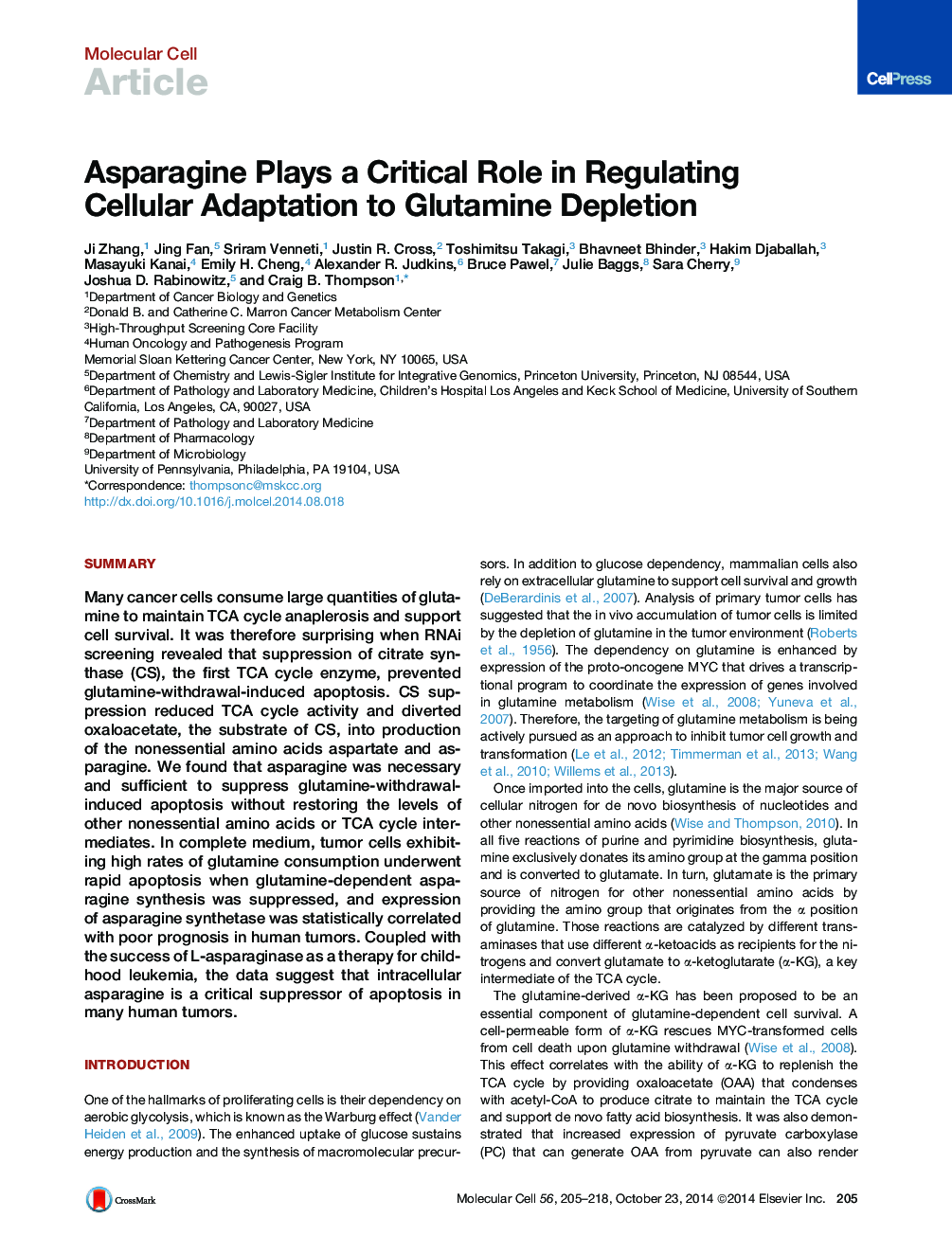| کد مقاله | کد نشریه | سال انتشار | مقاله انگلیسی | نسخه تمام متن |
|---|---|---|---|---|
| 1996145 | 1065425 | 2014 | 14 صفحه PDF | دانلود رایگان |

• Glutamine depletion-induced apoptosis results from asparagine depletion
• Reducing citrate synthase levels promotes aspartate/asparagine biosynthesis
• Asparagine is sufficient to suppress apoptosis in response to glutamine depletion
• Asparagine promotes ATF4-dependent adaptive stress responses
SummaryMany cancer cells consume large quantities of glutamine to maintain TCA cycle anaplerosis and support cell survival. It was therefore surprising when RNAi screening revealed that suppression of citrate synthase (CS), the first TCA cycle enzyme, prevented glutamine-withdrawal-induced apoptosis. CS suppression reduced TCA cycle activity and diverted oxaloacetate, the substrate of CS, into production of the nonessential amino acids aspartate and asparagine. We found that asparagine was necessary and sufficient to suppress glutamine-withdrawal-induced apoptosis without restoring the levels of other nonessential amino acids or TCA cycle intermediates. In complete medium, tumor cells exhibiting high rates of glutamine consumption underwent rapid apoptosis when glutamine-dependent asparagine synthesis was suppressed, and expression of asparagine synthetase was statistically correlated with poor prognosis in human tumors. Coupled with the success of L-asparaginase as a therapy for childhood leukemia, the data suggest that intracellular asparagine is a critical suppressor of apoptosis in many human tumors.
Graphical AbstractFigure optionsDownload high-quality image (270 K)Download as PowerPoint slide
Journal: - Volume 56, Issue 2, 23 October 2014, Pages 205–218